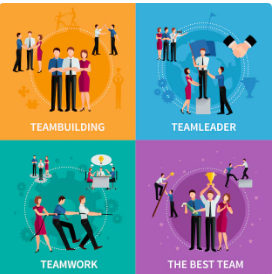Forgiveness is a powerful force that extends beyond individual relationships, playing a crucial role in fostering strong, resilient communities. In a world often marked by conflict, misunderstanding, and division, the act of forgiving can serve as a vital tool for healing and unity. This article explores how forgiveness contributes to community strength, the benefits it brings, and practical ways to encourage a culture of forgiveness within our neighborhoods and societies.
Understanding Forgiveness
Forgiveness is the process of letting go of resentment or revenge toward someone who has caused harm. It does not mean condoning the behavior or excusing the wrongdoer's actions; instead, it is about releasing the hold that anger and hurt have on us. When practiced on a community level, forgiveness can bridge divides, promote healing, and create a sense of belonging among diverse individuals.
The Importance of Forgiveness in Community Building
1. Fostering Healing and Reconciliation
Communities often experience trauma, whether from violent events, systemic injustice, or interpersonal conflicts. Forgiveness is essential for healing these wounds. By addressing grievances and acknowledging pain, communities can move toward reconciliation. This process allows individuals to rebuild trust, fostering a shared commitment to work through issues together.
2. Encouraging Empathy and Understanding
Forgiveness encourages empathy, prompting individuals to see situations from others' perspectives. This understanding can diminish hostility and create a more compassionate community environment. When people feel heard and understood, they are more likely to engage positively with one another, breaking down barriers and fostering connection.
3. Promoting Conflict Resolution
In any community, conflicts are inevitable. A culture of forgiveness provides tools for resolving disputes peacefully. When individuals are willing to forgive, they open the door to dialogue and collaboration, finding common ground rather than allowing disagreements to escalate into hostility. This promotes a healthier, more constructive approach to conflict.
4. Building Social Cohesion
Forgiveness strengthens social bonds. When individuals forgive, they contribute to a sense of belonging and unity within the community. Shared experiences of forgiveness can create a supportive atmosphere, encouraging people to work together for the common good. This social cohesion is essential for a thriving, resilient community.
5. Enhancing Mental Health and Well-Being
The psychological benefits of forgiveness extend to entire communities. High levels of resentment and unresolved conflicts can lead to stress, anxiety, and depression among community members. When forgiveness is embraced, it contributes to improved mental health, leading to a more vibrant, engaged, and proactive community.
Practical Ways to Foster Forgiveness in Communities
1. Community Dialogues
Organize community dialogues focused on forgiveness and reconciliation. These forums allow individuals to share their stories and experiences, fostering understanding and empathy. Facilitated discussions can help address grievances, promote healing, and encourage a collective commitment to moving forward.
2. Workshops and Education
Offer workshops and educational programs that emphasize the importance of forgiveness. These can include conflict resolution strategies, communication skills, and emotional intelligence training. Providing tools and knowledge can empower individuals to embrace forgiveness in their daily lives and interactions.
3. Celebrate Acts of Forgiveness
Recognize and celebrate acts of forgiveness within the community. Highlight stories of individuals or groups that have chosen to forgive, showcasing the positive outcomes that arise from this decision. Celebrations can reinforce the value of forgiveness and inspire others to follow suit.
4. Create Safe Spaces for Healing
Establish safe spaces where individuals can express their feelings and experiences without judgment. Support groups, community centers, or online forums can provide platforms for open dialogue, fostering healing and understanding among members.
5. Lead by Example
Community leaders and influencers can model forgiveness in their actions and communications. By demonstrating a commitment to forgiveness, they set a tone for the community, encouraging others to adopt similar values. Leadership plays a crucial role in shaping community culture.
6. Incorporate Forgiveness into Community Initiatives
Integrate forgiveness into community development initiatives, such as restorative justice programs or community service projects. These initiatives can focus on healing and reconciliation, emphasizing the importance of forgiveness as a pathway to community resilience.
7. Encourage Compassionate Communication
Promote compassionate communication practices within the community. Encourage individuals to express their feelings and grievances constructively, focusing on understanding rather than blame. This approach can help de-escalate tensions and promote forgiveness.
Conclusion
Forgiveness is a fundamental component of building stronger, more resilient communities. By fostering healing, empathy, and social cohesion, forgiveness serves as a catalyst for positive change. It allows individuals to move beyond personal grievances, promoting unity and collaboration for the greater good. As communities embrace forgiveness, they create a culture of understanding and support, enabling all members to thrive. In a world that often feels fragmented, the power of forgiveness offers a path toward healing, connection, and a brighter future for everyone.

